2010 by Mark Rosenfelder.
All rights reserved, including the right to reproduce this book or portions thereof in any form whatsoever, except for review purposes.
Ed. 1.1 Kindle
Introduction
What were going to do here is create worlds. You want a world for your epic novel, or a movie or video game, or an RPG session, or as an artistic creation. Or you are a mad scientist with an army of nanites who will construct your world from the atoms up. Whatever, well talk about how to make a plausible, interesting constructed world a conworld.
The companion volume, The Language Construction Kit , explained how to create languages , so I wont cover that that here. This book covers everything else:
Stars and planets
Alien creatures
Economics and history
Daily life
Religions
Magic
Technology and war
And more. Well also cover some of the technical details of creation:
Storytelling
Drawing
Making maps
Making 3-D models
Ive tried to answer all the immediate questions youll have while conworlding, from how to calculate the year (p. ) to how far a horse can run in a day (p. ) to how early you can have iron weapons (p. ).
Sources and extra reading
The Language Construction Kit served as an introduction to one subject, linguistics. This book is an introduction to all kinds of stuff, and Im not an expert in all of them . And in some areas, no one is : magic or alien biology, for instance .
On the bright side, one advantage of conworlding is that everything is source material. Anything in the physical sciences could be relevant. Anything historical or religious can go into fantasy; anything you learn about foreign cultures can help you create new ones.
In some ways I should have written five books instead of one. But its useful, and a lot cheaper for you, to have all of this material in one place. Plus, if any subject interests you, you can always pursue it more. Ive included an reading list at the end with books Ive found particularly helpful. These will also supply the details and nuances I havent had room for.
You can be inspired by fiction, of course, but make sure you read real-world sources as well. You may be able to write a convincing battle scene merely by reading Tolkien, but youd do better to read some military history. Or join the army .
Websites : URLs rot too quickly to list in a book. Ill list some useful pages on this page of my own site:
http://www.zompist.com/resources/ pck.html
The dire consequences of failure
What happens if you dont follow the recommendations in this book? Well, not to be too alarming, but that could well be part of a process which ends in the heat death of the universe . But in the short term, the advantages of the book are these:
More options . All too often fantasy books are retreads of medieval Europe, and s.f. books of contemporary America. Its like a painter whos restricted to using yellow and orange.
Greater accuracy and immersion . If you dont know much, youre bound to write vaguely. If you write about a swordfight, you want to go beyo nd just knowing that the combat ants swing pointy things at each other.
Depth and allusion . As an example, my novel In the Land of Babblers occasionally quotes the Cuzeian holy book, the Count of Years . This isnt just a made-up name; this book exists and people can go read it. Or people whove read it as an aspect of my conworld will recognize the reference when they read Babblers . This is part of Tolkiens secret; we sense while reading that his world is l arger than the books before us.
Memorability . A well constructed world is fascinating in its own right; we want to go there. The underground London of Neil Gaimans Neverwhere , for instance, is as much of an enticement as the characters or the plot.
Avoidance of distractions for the reader. You want the reader following your story, not snickering at the cheesy or implausible bits.
Getting started
How do you start creating a culture?
Theres no obvious or necessary order, but Id suggest something like this:
Choose the big picture elements, if any, that have the biggest impact on the world. If your people have three sexes, or live on a gas giant, or all use magic, or live a thousand years, those things will affect everything else you do.
Look over the E-Z Fantasy World chapter (p. ) to make some basic decisions . This can give you a brief overview of your culture.
Make a map . Dont worry too much about names. It just helps to know the geographical situation for your people: is it an island? is it big or small? is it hemmed in by threatening neighbors?
Write a culture test (p. ). This is an easy way to cover many aspects of what its like, day to day, to live in your invented culture, and how its different from your own.
Create a naming language for how, see the Language Construction Kit . Youre going to want names for characters and places anyway.
Write a biography of a characteristic person from your culture (p. ) not the protagonist of your epic story or game, but an ordinary shmo. Youll have to think about their childhood, what their village looks like, how they make a living, how families and marriages work, what rites they follow and what games they play .
If you created some unusual Big Picture elements, this is your chance to see how they actually work. If they dont really affect the characters story, theyre either not so major after all, or you didnt fully work out their consequences.
Write an outline history . Dont worry about lists of kings. Ideally, the place used to be quite different, and theres a story about how it changed. E.g.
It used to be... | and now its... |
a vast empire | a motley collection of states |
ruled by elves | dominated by humans |
two separate nations | united, with cultural remnants of the former independent countries |
a rich and prosperous planet | nearly destroyed |
underwater | reclaimed bit by bit into a prosperous nation |
a nation of bold warriors | a bunch of pedantic bureaucrats |
full of magic | mundane, with a few exceptions |
mundane | transformed by magic |
Read th is book , applying what youve learned chapter by chapter. That is, systematically cover the astronomy, geology, biology, culture, and religion of your culture.
Expect to have to revise as you work out details. You may toss in a reference to the gods in your culture test and then discover that the people actually worship ancestors and spirit animals.
Dont worry if your first attempts are crappy . Its always good to get something down, and revising is easier than writing from scratch. Put the crappy piece aside for awhile; then take it out and identify specific problems not it sucks but the king is talking like a teenager or no reasons are given for any of these events. Then address those.

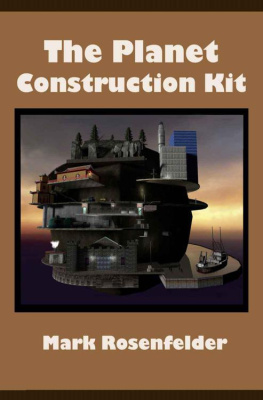
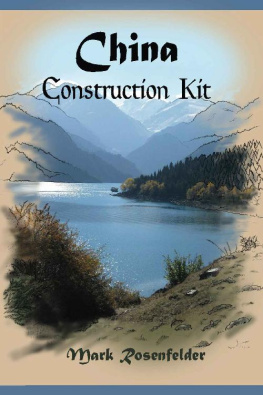
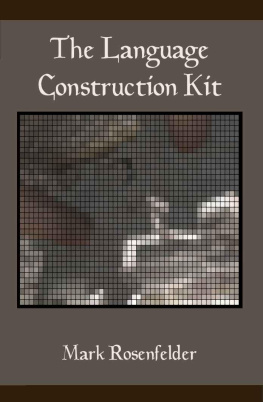
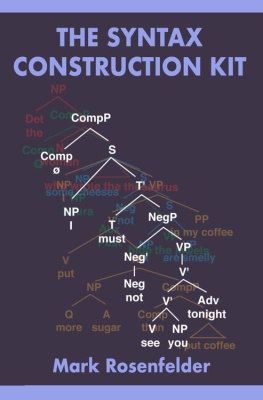

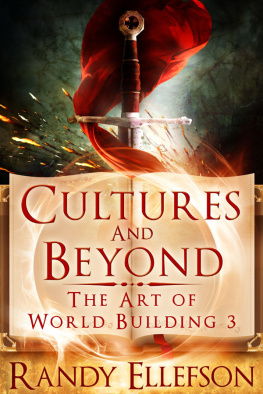
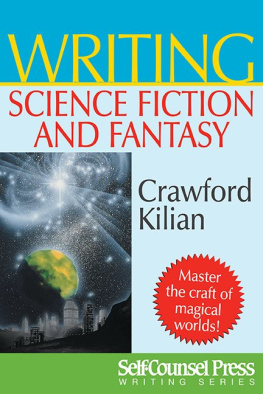
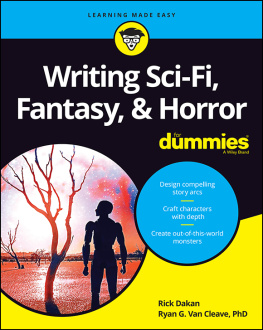
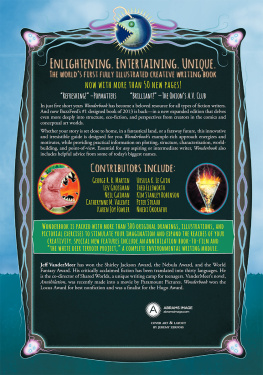
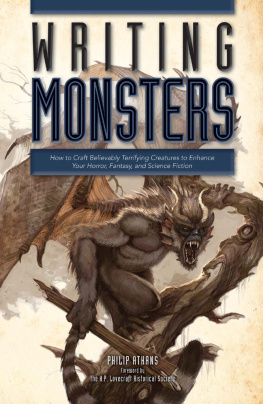
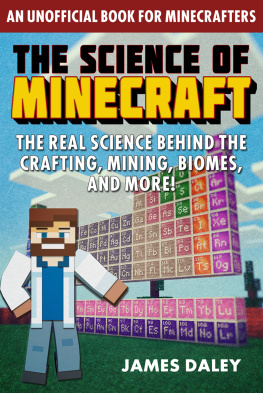
![Mark J. P. Wolf (editor) - Encyclopedia of Video Games: The Culture, Technology, and Art of Gaming [3 volumes]](/uploads/posts/book/279290/thumbs/mark-j-p-wolf-editor-encyclopedia-of-video.jpg)

